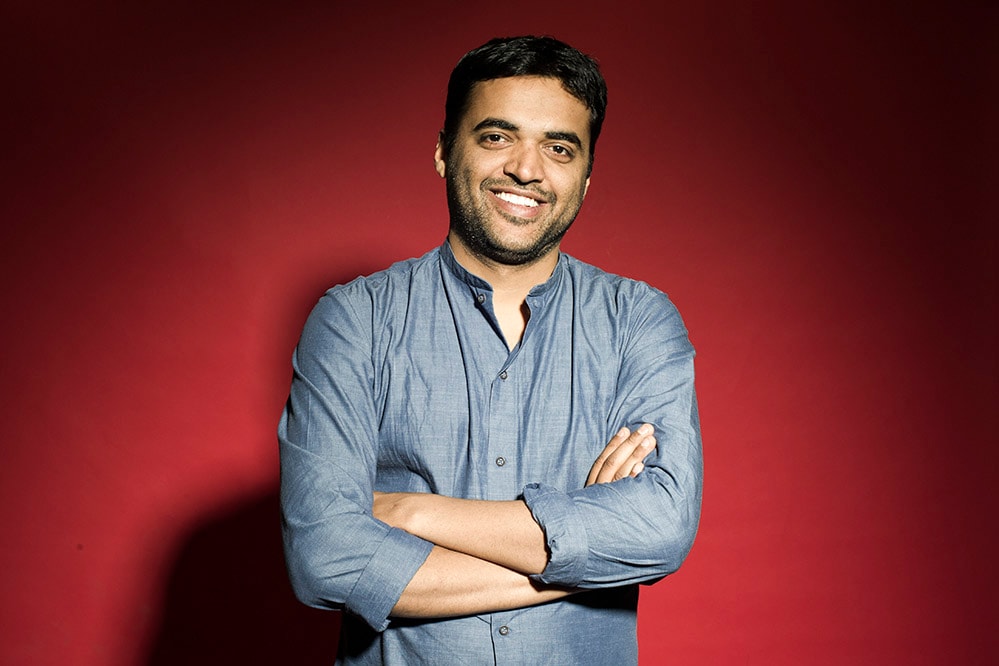
Zomato claims 'profit'
The food delivery startup offers to waive off commission charged to restaurants for delivery in a bid to counter Swiggy's aggressive expansion
 Deepinder Goyal
Deepinder Goyal
Image: Amit Verma
Food delivery startup Zomato, one of the few homegrown consumer internet businesses with a global presence in 24 countries, on Monday claimed in a blog post that the company has turned "profitable".
Chief executive officer Deepinder Goyal wrote that the “core advertising business in India, Southeast Asia and the Middle East is generating enough cash to cover for the millions of dollars of investments we are making into the rest of the regions, and our new businesses”.
A company spokesperson clarified that Zomato is generating Ebidta (earnings before interest, depreciation, tax and amortisation) and not net profit. The spokesperson did not comment on when exactly did Zomato turn "profitable".
Zomato also announced on Monday that the company will waive off the commission it charges restaurants for food delivery, an aggressive move to counter Swiggy, the Naspers-backed food delivery startup that has so far raised about $155 million from a clutch of investors, including Accel Partners, SAIF Partners and Bessemer Venture Partners among others.
Goyal wrote in the blog post that more than 70 percent of the restaurants listed on Zomato are eligible for the “zero commission” service, based on the number of orders processed on Zomato every week and customer feedback on quality of food and service.
The move to waive off commissions comes at a time when Zomato and Swiggy are locked in an expensive land grab. Both companies have been fighting for market share and have emerged as leaders after most food delivery startups wilted over the last 18 months following a slowdown in funding.
While Swiggy is fairly well capitalised, Zomato is reportedly in talks to raise more than $100 million from Alibaba-affiliate Ant Financials.
Food delivery is considered a high cash burn business given poor unit economics. Initially, most food delivery companies lost money on every order delivered, which essentially means cost of delivery far exceeded the commission earned.
To be sure, Zomato launched food delivery in 2015. Despite the food delivery business growing at a fast clip, a lion’s share of Zomato’s revenue still comes from the advertising business.
Chief of staff Surobhi Das had said in a blog post in April that the food delivery business had clocked revenues of $9 million last fiscal, an eight-fold growth from the year-ended March 31, 2016. The advertising revenue grew by 58 percent to $38 million last fiscal.
Apart from this, between December last year and March, the company had contained monthly cash burn to about $250,000 as against $4.2 million in March 2016.
In comparison, Swiggy clocked revenues of about $4 million (approximately ₹23.59 crore) in FY16 while losses stood at ₹137.18 crore. Interestingly, Uber has also thrown its hat in the ring with the launch of its food delivery business, UberEATS, earlier this year.





